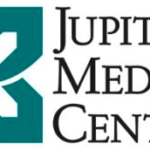February 3 2022 – A team led by Lluis Morey, Ph.D., has received a five-year, $1.7 million grant from the National Institute of General Medical Sciences (NIGMS) to investigate treatment resistance in estrogen receptor positive (ER+) breast cancer. Specifically, the group will study polycomb repressive complexes (PcGs), which play major and often conflicting roles in early development and cancer.

Dr. Morey’s team will investigate treatment resistance in estrogen receptor positive breast cancer.
“Patients who develop resistance to endocrine therapies, which are commonly used to treat ER+ breast cancer, often overexpress polycomb-encoding genes,” said Dr. Morey, Sylvester Comprehensive Cancer Center researcher and assistant professor of human genetics at the University of Miami Miller School of Medicine. “We need to better understand how PcGs regulate the genes and signaling pathways that confer this resistance.”
Until recently, PcGs were thought to have one job: suppress gene expression. This is a critical function during early development, as stem cells progress from being pluripotent to becoming neurons, heart cells, etc. PcGs make sure emerging neurons, for example, only express neuronal genes, suppressing genes that encode for proteins involved in the development of heart, liver, and everything else.
But a few years ago, Dr. Morey and colleagues were surprised to find that PcGs have a quite different job in breast cancer: activating genes — particularly dangerous oncogenes — rather than suppressing them.
A Major Finding
“This was a major finding,” Dr. Morey said. “These protein groups are called polycomb repressive complexes, but now we know they activate oncogenes as well. A name change may be in order.”
The NIGMS grant will help the Morey lab dissect the mechanisms that drive PcGs. First, they will examine why these complexes have a completely different function in cancer than development. From there, they can begin to understand how PcGs influence treatment resistance in ER+ breast cancer patients.

Lluis Morey, Ph.D.
These findings may ultimately extend many lives. Estrogen helps fuel rampant cell growth in ER+ cancer, and several endocrine therapies have been developed to mitigate that risk. However, many patients eventually develop resistance, forcing them to find other treatment options, if they exist.
“We want to understand why polycomb proteins are so important for oncogene activation in breast cancer,” Dr. Morey said. “Perhaps we can modulate this activity to help patients maintain strong responses to endocrine therapies.”
Identifying Therapeutic Targets
At present, there are no existing drugs that target the polycomb proteins that Dr. Morey studies. And while the NIGMS grant is not intended to fund drug discovery, he believes this work has great potential to identify therapeutic targets that translational scientists and drug companies can pursue.
These findings may also support better care for a variety of patients, as polycomb complexes have been implicated in a variety of cancers.
“It’s not just breast cancer,” Dr. Morey said. “We’ve seen this kind of activation in leukemia and, more recently, in head and neck cancers. By investigating PcGs’ dual role, we can begin to understand these mechanisms and find better options for patients who have become resistant to current therapies.”




























